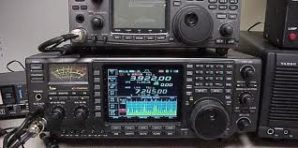
Amateur radios used for two-way communications–have long served as an invaluable and effective method of communication for their users.
The Federal Communications Commission has allocated certain radio frequencies to amateur radio use, and it has required those seeking to communicate on those frequencies to first obtain FCC licenses.
The nearly 700,000 U.S. residents who have obtained such licenses make up what is called the “Amateur Radio Service” (ARS).
“In emergency situations, members of the ARS have proven the value of their technology and skills to helping those in need”, said Ted Foster of Charlotte, N.C.
Natural disasters (as well as technological and terrorist related emergencies) can and sometimes do cause phone lines (or “land lines”) to fail and can leave cell phone services overwhelmed.
The ability of amateur radios to communicate often times emerges from these disasters unaffected, enabling amateur radio operators to serve as an extremely valuable and vital communicator of critical information in emergency situations, when other more traditional means fail (see article: “Amateur Radio Provides Lifeline During Disaster” http://redcrossnw.wordpress.com/2007/12/13/amateur-radio-provides-lifeline-during-disaster/).
See also: The Role of Amateur Radio In Disaster Communications http://www.ice-pack.com/EP_news/2010/11/the-role-of-amateur-radio-in-disaster-communications/).
Volunteer radio operators provided such services during hurricanes Katrina, Rita, Hugo, and Andrew, during the relief efforts at the World Trade Center and the Pentagon following the 2001 terrorist attacks, and during the Oklahoma City bombing in April 1995.
Despite these numerous examples of the invaluable service and the great need for reliable communications during natural disasters and emergency situations Amateur Radio operators provide, there is currently is no strategy for organizing and harnessing the potential of this critical communication infrastructure.
This is seen as a critical flaw in emergency management planning that still needs to be addressed by most if not all local, county, state and federal emergency management agencies across the country. I know this is certainly the case in Kansas, especially in smaller more rural counties like Rush county, Kansas – which ignores amateur radio entirely in its emergency management planning.
If your interested in amateur radio and would like to seek a license click here for more information http://wireless.fcc.gov/services/index.htm?job=service_home&id=amateur
See related video: Amateur radio http://www.youtube.com/watch?v=KMWn5HkFPnU

